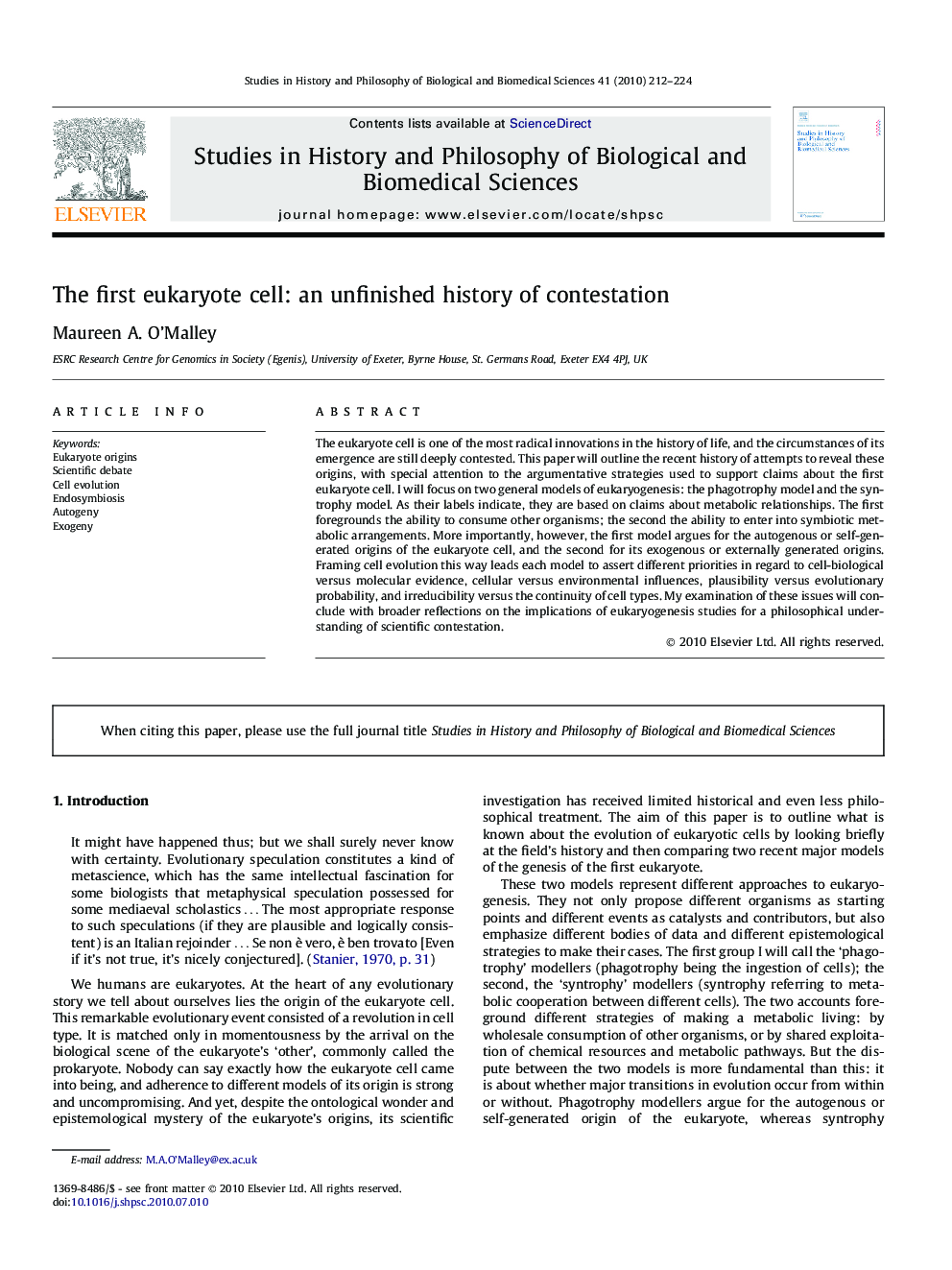| Article ID | Journal | Published Year | Pages | File Type |
|---|---|---|---|---|
| 1161931 | Studies in History and Philosophy of Science Part C: Studies in History and Philosophy of Biological and Biomedical Sciences | 2010 | 13 Pages |
The eukaryote cell is one of the most radical innovations in the history of life, and the circumstances of its emergence are still deeply contested. This paper will outline the recent history of attempts to reveal these origins, with special attention to the argumentative strategies used to support claims about the first eukaryote cell. I will focus on two general models of eukaryogenesis: the phagotrophy model and the syntrophy model. As their labels indicate, they are based on claims about metabolic relationships. The first foregrounds the ability to consume other organisms; the second the ability to enter into symbiotic metabolic arrangements. More importantly, however, the first model argues for the autogenous or self-generated origins of the eukaryote cell, and the second for its exogenous or externally generated origins. Framing cell evolution this way leads each model to assert different priorities in regard to cell-biological versus molecular evidence, cellular versus environmental influences, plausibility versus evolutionary probability, and irreducibility versus the continuity of cell types. My examination of these issues will conclude with broader reflections on the implications of eukaryogenesis studies for a philosophical understanding of scientific contestation.
